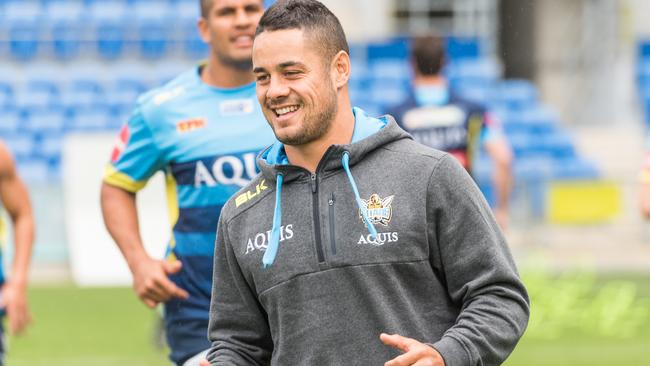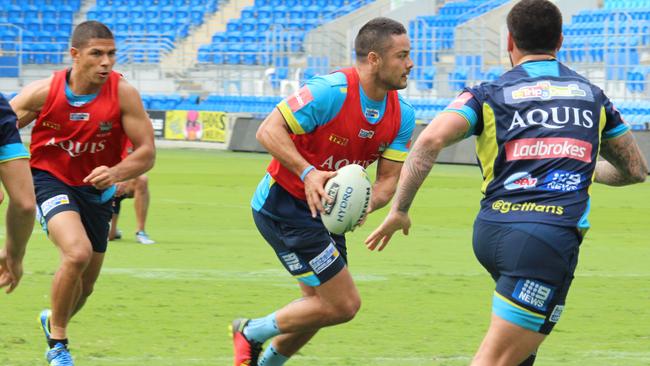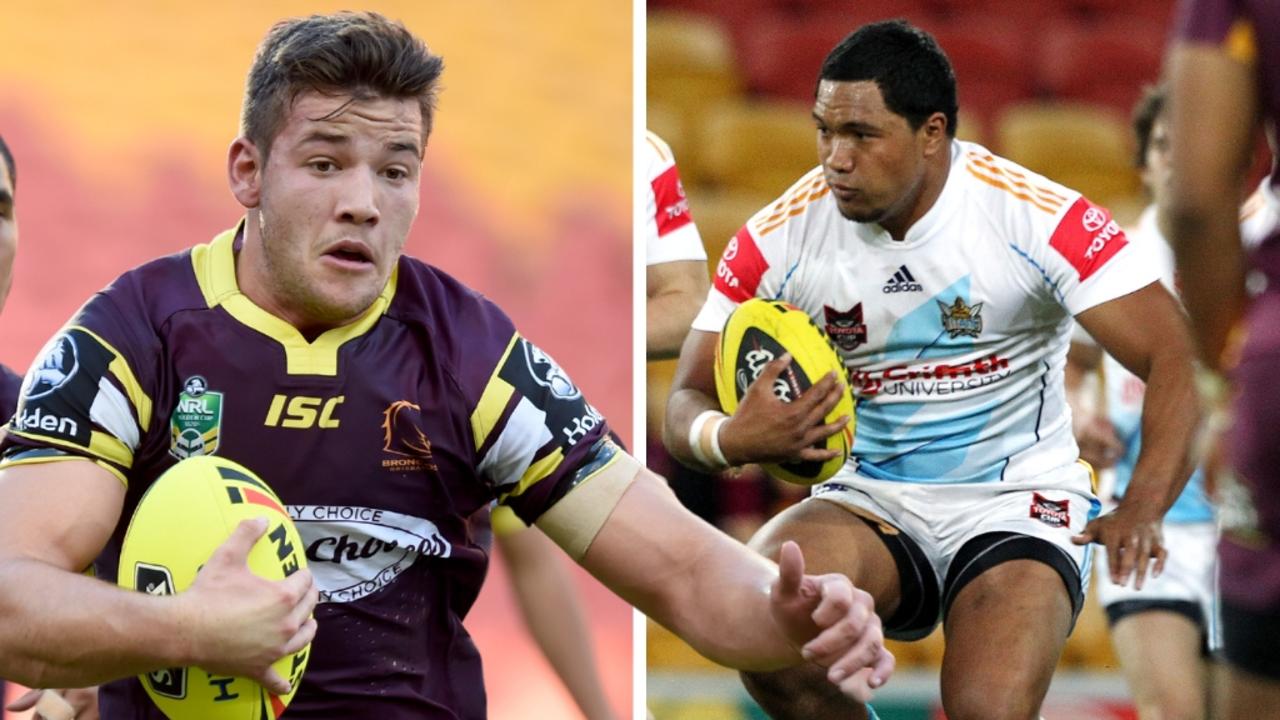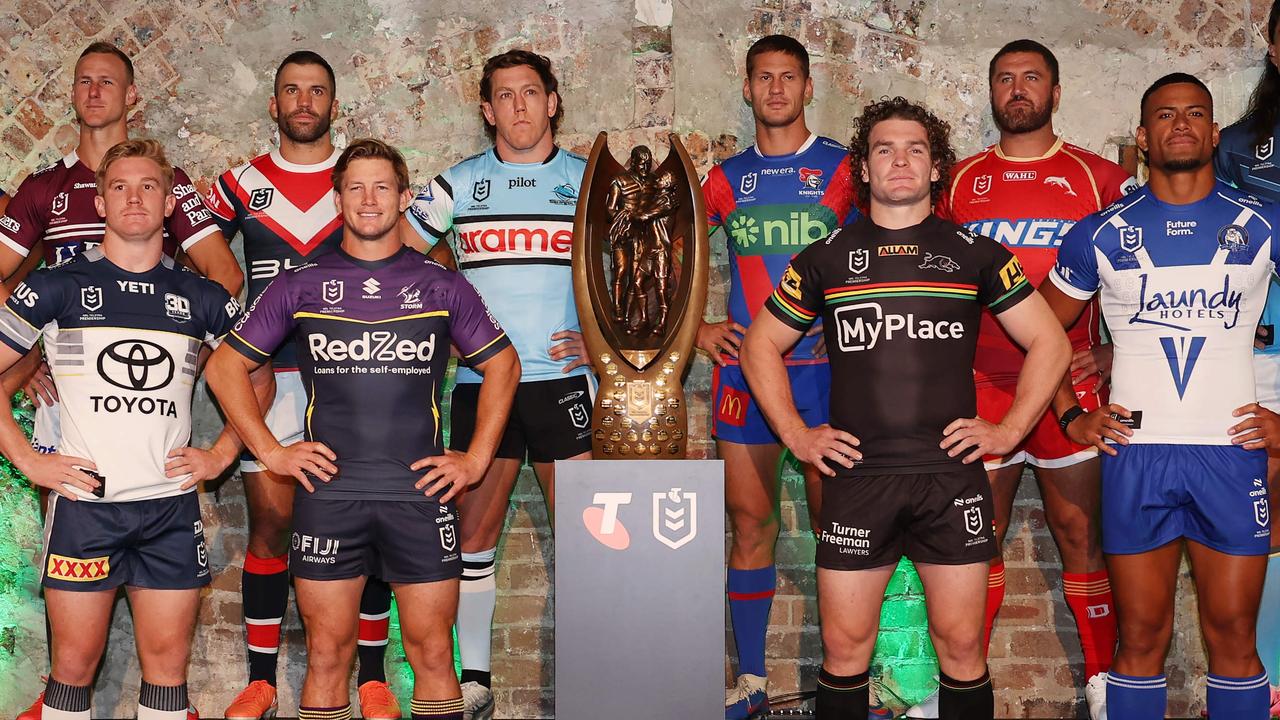Jarryd Hayne‘s wage at Gold Coast is more than he would receive for a State of Origin match
JARRYD Hayne is in line to be become the first player in five years to effectively take a pay cut to play Origin if he’s recalled by the Blues next season.
Titans
Don't miss out on the headlines from Titans. Followed categories will be added to My News.
JARRYD Hayne is in line to be become the first player in five years to effectively take a pay cut to play an Origin match if he’s recalled by the Blues next season.
Hayne’s reported $1.2 million a year deal with the Titans equates to $50,000 for each of the 24 NRL games in 2017.
Players received $30,000 per Origin game from the NRL since 2013. It had been $10,000 a match in 2012, a much smaller component in an Origin player’s overall earnings.
Few NRL players for this year or next are on a salary of $720,000 or more — an amount reflecting $30,000 a match for their club.
But in the next Collective Bargaining Agreement, taking effect in July 2017, the NRL will likely to be pressed to increase Origin payments from $30,000 a game.

Hayne played 20 games for NSW over eight years and only a prolonged form slump or injury would prevent him being back in blue for the series opener with Queensland at Suncorp Stadium next May.
Gold Coast, with their salary cap room for this year and next, have unleashed the beast of player payments in rugby league for elite players, with other topliners to push for $1 million plus contracts in 2018.
The clubs know they will have a base salary cap next year of $6.9 million, but have been waiting for months to know their permitted cap in 2018 as the NRL and the clubs have disagreed over a funding model and future caps.

“We don’t know it yet for 2018. I expect the club agreements will be finalised soon and the cap will then be issued,’’ Titans CEO Graham Annesley said on Thursday.
Penrith general manager Phil Gould said this week he thought the salary cap would be $8.5 million-$9m in 2018, the first year of the new broadcast deal.
Some clubs are working on the basis of a cap of up to $9.5 million in 2018, while some early this year started pressing the NRL for a $10 million cap.
In addition to Origin match payments, state representation over even a short term also reflects in the salary a player draws from a club and, in many cases, third-party deals or personal sponsorships.
Some hopeful players also have a clause inserted in club contracts in which extra payments are triggered by representative selection.
Originally published as Jarryd Hayne‘s wage at Gold Coast is more than he would receive for a State of Origin match


